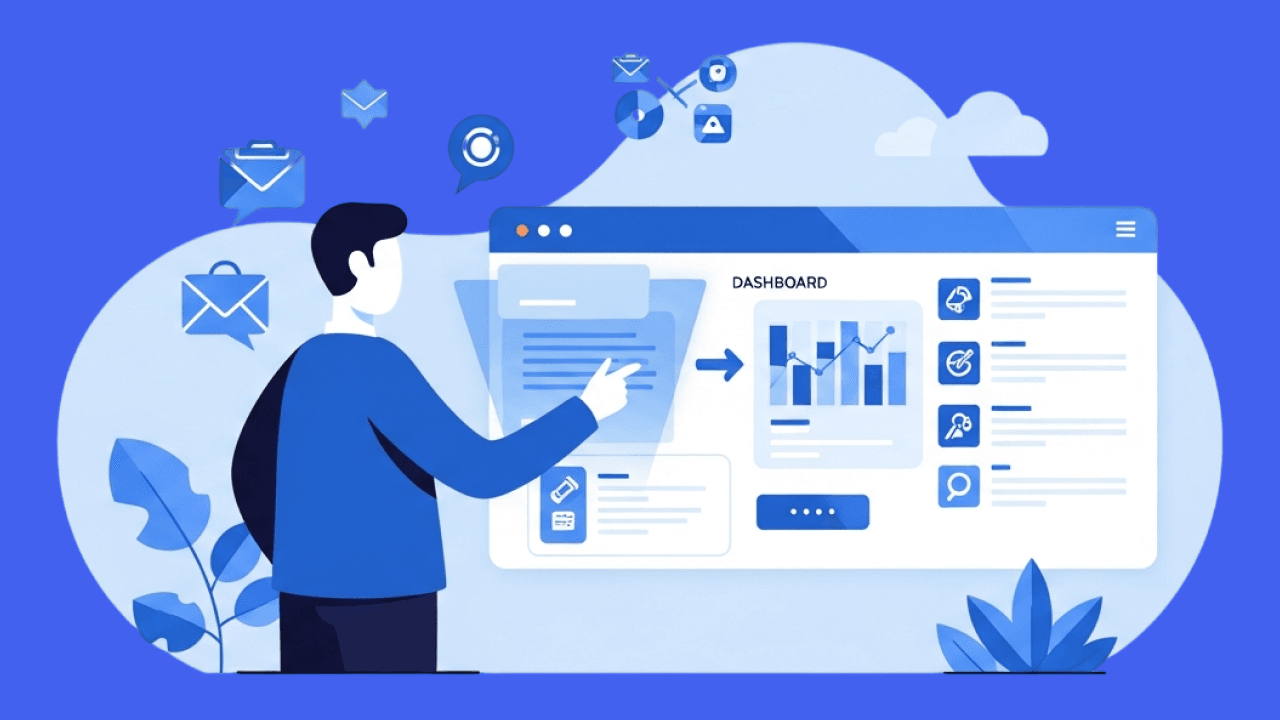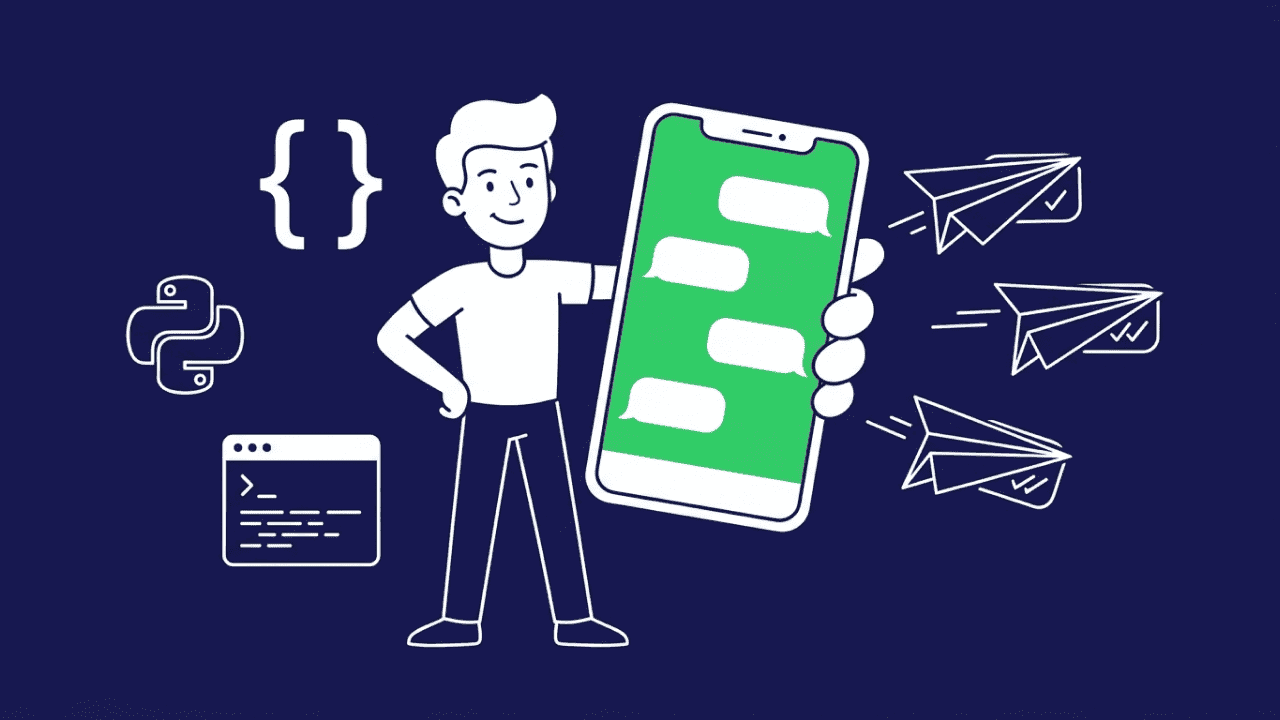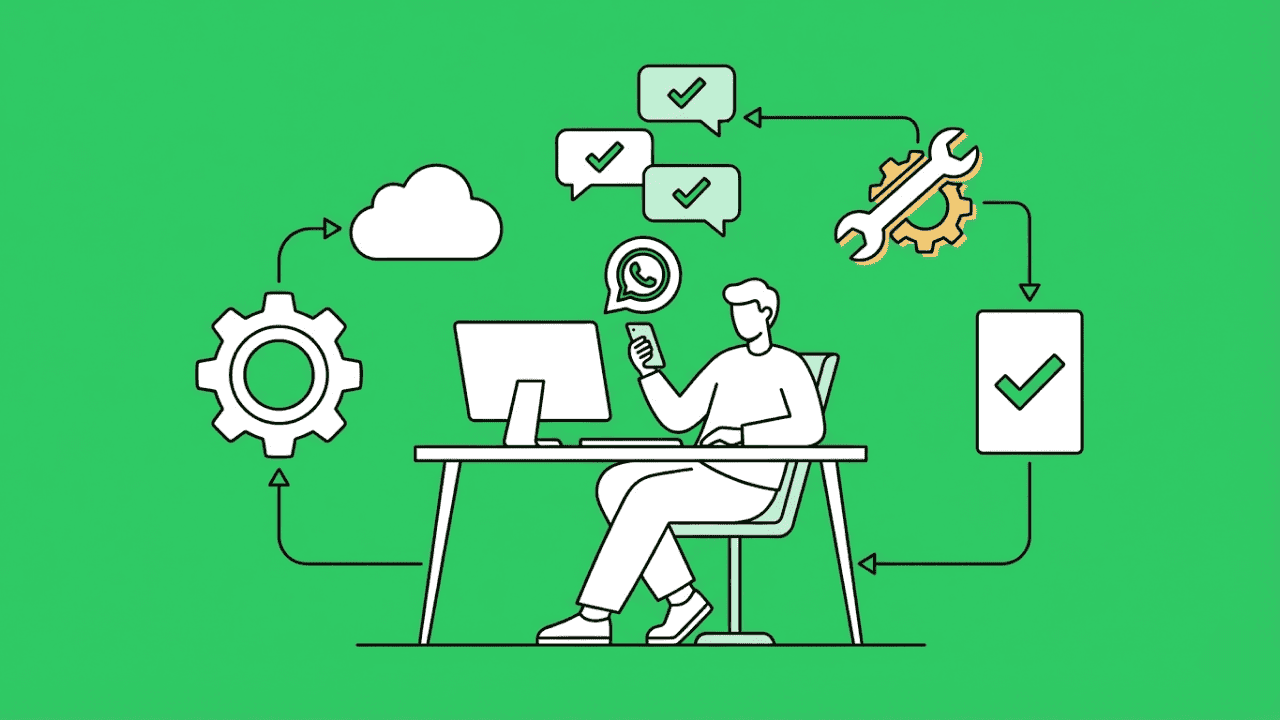In the dynamic e-commerce environment, the number and complexity of customer inquiries are rising rapidly. Traditional ticketing systems quickly reach their limits – repetitive, manual effort paralyzes support teams, ticket processing time increases, and the customer experience suffers. AI Ticketing systems are setting new standards here: 70% of standard tickets can be automated. With AI-powered automation, omnichannel support, and deep shop integrations, they are revolutionizing ticket management and making customer support scalable, transparent, and measurably efficient.
What is AI Ticketing – and How Does It Differ from Classic Ticket Systems?
AI Ticketing – also known as KI Ticketing – describes the automated processing and management of support tickets with the help of artificial intelligence. Instead of manually recording, categorizing, and forwarding tickets, AI ticket systems analyze every customer inquiry in real-time, recognize the need (e.g., WISMO, returns, invoices, product questions), and control the entire workflow until resolution or handover to human agents.
Most importantly: Automated ticketing goes far beyond classic ticket recording. AI-based systems classify and prioritize tickets, automatically generate responses to standard inquiries, and ensure that your team only has to deal with complex cases and consultation requests.
Traditional Ticketing vs. AI Ticketing
| Feature | Classic Ticketing | AI Ticketing (e.g., ArminCX) |
|---|---|---|
| Ticket Creation | Manual by agents | Fully automatic via AI |
| Categorization | Static via rules | Dynamic through intent recognition |
| Processing | Human, reactive | Proactive, automated |
| Channels | Mostly email | Omnichannel: Chat, WhatsApp, Social, Voice |
| Shop Integration | Low | Native (Shopify, Woo, Shopware) |
| Self-Service | FAQ-based | Intelligent Portals + Chatbots |
| Reporting | Manual | Real-time KPIs & CSAT analysis |
| Automation Potential | Low | Up to 70 % |
| GDPR | Variable | 100 % EU compliant |
The difference is fundamental: While traditional systems merely manage tickets, AI Ticketing systems think for themselves – they understand concerns, prioritize them automatically, and execute the appropriate action directly if necessary (e.g., retrieving shipping status, initiating a return, or sending an invoice).
How Does AI Ticketing Work in E-Commerce?
AI Ticketing uses a combination of Natural Language Processing (NLP), Retrieval-Augmented Generation (RAG), and Machine Learning to manage the entire lifecycle of a ticket:
Recognition & Classification: Every incoming inquiry is automatically analyzed and classified in real-time (e.g., WISMO, returns, invoices, product questions).
Response Generation: Based on knowledge databases, order history, and product data, the AI automatically creates matching draft replies or complete answers.
Ticket Routing & Automation: The system decides whether a ticket should be resolved directly, forwarded to a team, or prioritized.
Learning & Optimization: Through feedback loops and training, the AI continuously improves its recognition and response quality.
Through this approach, companies reduce processing times by up to 80%, significantly lower support costs, and simultaneously increase customer satisfaction.
Use Cases for AI Ticketing
AI Ticketing systems are revolutionizing ticket management in customer service by automating routine processes with modern AI solutions, intelligently classifying issues, and measurably increasing productivity. They combine learning AI agents, omnichannel communication, and e-commerce integrations into a holistic support system. Here are the most important areas of application at a glance:
Customer Service: WISMO, Returns, Invoices
WISMO (“Where Is My Order?”)
What happens? The AI recognizes the concern, retrieves order & tracking data from Shopify/WooCommerce/Shopware, generates a context-specific response (status, ETA, link), and closes the ticket automatically.
Process: Intent recognition → Order lookup → Response module (incl. tracking) → Ticket status "resolved" → optional CSAT query.
Effect: Response time < 30 sec., Deflection Rate 60–80 %, stable SLAs even during peaks.
Returns Workflows
What happens? The AI agent checks order status & deadlines, automatically creates the return label, documents it in the CRM, and sets the order in the shop to "returns process."
Process: Intent recognition → Policy check → Label/Portal link → CRM logging → Feedback to customer.
Effect: −35–50 % agent effort for returns, fewer errors, consistent policy implementation.
Invoice & Address Inquiries
What happens? An invoice or address change is requested via chat/email/WhatsApp. The bot retrieves the documents via API or changes data with authorization check (RBAC), confirms in the chat, and logs it in the CRM.
Process: Intent recognition → Ident check (e.g., order/customer number) → API action → Confirmation/Download.
Effect: Seconds-fast processing, traceable audit trails, higher FCR (First Contact Resolution).
Pro Tip: Store "golden answers" (approved texts) for sensitive topics (e.g., goodwill, revocation) so that draft replies are always policy-compliant.
E-Commerce: Peak-Season Automation & Shopify Integration
Peak-Season Automation (Black Friday, Seasons, Drops)
What happens? AI Ticketing automatically prioritizes (e.g., delivery issues > general questions), bundles identical concerns (“carrier delay”), and sends proactive updates to affected customers.
Process: Topic cluster → Mass update → proactive notifications → live monitoring (CSAT, backlog).
Effect: No escalation chaos, AHT (Average Handling Time) decreases, teams maintain an overview.
Shopify Integration (Native)
Use cases: Order lookup, address change, invoice/receipt, inventory status, subscription adjustments, vouchers for SLA delays.
Advantage: The AI acts directly in the shop backend instead of just generating texts – true ticket resolution instead of pure communication.
Extension: Upselling after ticket closure via Klaviyo/CRM triggers (e.g., matching accessories, bundle offers).
ITSM & HR: Ticket Categorization & HR Self-Service
ITSM (Internal Ticketing)
What happens? The AI classifies and prioritizes IT tickets (access, password, hardware), fully automatically resolves standard cases (e.g., password reset, software access), and only escalates special cases.
Effect: Faster internal SLAs, clear routing logic, documented changes (change/incident processes).
HR Self-Service
Use cases: Certificates (working hours, salary), vacation/absence processes, internal policies.
Process: Intent recognition → Ident check → Document/process automation → Feedback in the employee channel (email/chat).
Data Protection: Strict RBAC, PII masking, logging – especially important for personal data.
Omnichannel: WhatsApp, Email, Instagram, Amazon
WhatsApp (Business API)
Strengths: High response rate & proximity to the customer. Perfect for WISMO, returns, invoice download.
Practice: Templates for transactions, event triggers (Order Shipped), and multilingual responses.
Strengths: Long context, good traceability.
Practice: Draft replies from knowledge base + customer data, automatic attachment of invoices/labels.
Instagram / Social DMs
Strengths: Fast, informal communication in D2C.
Practice: Intent recognition in DMs, handover to shop/CRM workflows (order status, availability), escalation path to agents.
Amazon (Marketplace Messages)
Strengths: Consolidated channel for marketplace customers.
Practice: Status/return info and SLA-compliant responses; observe policies, standardize answers.
Important: Omnichannel does not just mean "answering everywhere," but unified logic & data basis. AI Ticketing combines channels into a timeline, keeps tone/policy consistent, and measures performance (CSAT, FCR, Deflection) across channels.
Advantages of AI Ticketing Systems for Businesses
AI Ticketing elevates your customer service to a new level operationally and strategically: less manual work, more speed, measurable ROI. The most important advantages in detail:
Faster Response Times (Seconds Instead of Hours)
AI identifies concerns (intent recognition), retrieves context from shop/CRM (order, shipping, customer data), and responds automatically – across all channels (email, chat, WhatsApp). Typical effects: Time-to-First-Response in seconds, processing without waiting times, stable SLAs even under load. Example: WISMO status incl. tracking link in < 30 sec., without an agent.
Relief for Support Teams (30 – 40 % Less Manual Tickets)
Standard cases (WISMO, returns, invoices, address changes, FAQ) are resolved via ticket automation and self-service. This reduces volume, lowers AHT (Average Handling Time), and shifts the team's focus to value-adding cases (complaints, consultation). Key figures to watch: Deflection Rate, FCR (First Contact Resolution), AHT.
Uniform, Data-Driven Responses
With Knowledge-Base-AI/RAG, the AI uses verified content (FAQ, policies, product data) and generates draft replies in the brand's tone of voice. Result: Consistent, traceable answers, fewer errors, better compliance (e.g., goodwill, revocation, guarantees). Governance via policies, golden answers, and QA checks ensures quality.
Scalability During Growth – Without Additional Heads
Whether it's a launch, campaign, or peak season: AI scales automatically with the inquiry volume. Automated classification, prioritization, and routing keep queues lean, and agents concentrate on complex tickets. This way, support grows with the business, not the fixed costs.
24/7 Availability for Global Customers
AI Ticketing answers inquiries around the clock and in multiple languages. Fallback rules (handover) ensure that sensitive or complex cases are specifically handed over to humans. This boosts CSAT worldwide – regardless of time zone, time of day, or channel.
Proactive Insights Through Data Analysis
Dashboards show real-time intent trends, CSAT/CES, deflection, escalations, and causes (e.g., product, carrier, region). These insights lead to concrete actions: process fixes, content updates in the knowledge base, proactive messages (e.g., delivery delay), or triggers for CRM/Klaviyo flows (after-sales, upselling). This makes support a driver for growth and quality.
Challenges & Limits
As powerful as AI Ticketing systems are, they also come with specific challenges that companies should consider strategically:
Technical Requirements:
A clean data basis is crucial. Without structured CRM, shop, and communication data, the AI cannot make precise decisions or generate relevant answers. The initial training (e.g., intent recognition, classification rules, RAG links) also requires time and resources.
Limited Emotional Competence:
Despite NLP and sentiment analysis, AI systems lack true empathy. Complex or sensitive concerns – such as claims, complaints, or escalations – must still be handled by humans. The right balance between automation and personal support remains central.
Cost Model:
AI-based ticketing systems sometimes use variable cost models (e.g., pay-per-resolution or volume-based prices). This can be cheaper in the long run but requires precise ROI calculation and ongoing monitoring of ticket volumes.
Fear of Change in the Team:
Automation is often perceived as a threat. To build acceptance, teams must understand that AI does not replace but relieves – it takes over routine tasks so that people can concentrate on complex, value-adding assignments.
Market Overview: The 5 Best AI Ticketing Systems (2025)
| Provider | Focus & Target Group | AI Functionality | Integrations | Special Features / USP |
|---|---|---|---|---|
| ArminCX | E-commerce, D2C, Retail | Very High – AI-first Ticketing with RAG & Copilot | Shopify, WooCommerce, WhatsApp, Klaviyo, Zapier | GDPR/EU Hosting, Deepest Automation Rate, E-Com-native Integrations |
| Zendesk | Enterprise, B2C, Omnichannel | High – Copilot, Generative Replies, AI Triage | Omnichannel (Email, Chat, Voice, Social, WhatsApp) | Comprehensive CX Suite, Strong Automation & Reporting |
| Freshdesk (Freddy AI) | SMB & Enterprise | Medium – AI-powered Sorting, Intent Detection | Chat, Email, CRM, Slack | Affordable Entry Solution with Solid Automation Framework |
| SysAid | ITSM & Internal Service Desks | Medium – Workflow-based AI & Prioritization | ITSM Systems, Email, AD | Strong Focus on IT Teams & Internal Ticket Structures |
| Zoho Desk | SMB, Start-ups, Price-Conscious Teams | Basic – AI “Zia” for Analysis & FAQs | CRM, Email, Social | Budget-Friendly, Part of the Zoho Suite, Easy to Use |
Profile of the Best Tools
ArminCX
Category: E-commerce, D2C, Retail AI Level: Very High – AI-first Ticketing with RAG & Copilot Channels / Integrations: Shopify, WooCommerce, WhatsApp, Klaviyo, Zapier USP / Advantages: GDPR/EU Hosting, Deepest Automation Rate, E-Com-native Integrations
ArminCX is the AI-first alternative to US helpdesk systems and was developed specifically for e-commerce. With RAG-powered ticketing, Copilot function, and native Shopify integration, ArminCX enables maximum automation with full GDPR protection – perfect for brands with high support volumes and performance demands.
Zendesk
Category: Enterprise, B2C, Omnichannel AI Level: High – Copilot, Generative Replies, AI Triage Channels / Integrations: Email, Chat, Voice, Social, WhatsApp USP / Advantages: Comprehensive CX Suite, Strong Automation & Reporting
Zendesk is one of the most established platforms for professional customer service in the enterprise sector. With advanced AI, automatic ticket triage, and omnichannel communication, Zendesk supports global support teams in fast, scalable customer contact – from email to WhatsApp.
Freshdesk (Freddy AI)
Category: SMB & Enterprise AI Level: Medium – AI-powered Sorting, Intent Detection Channels / Integrations: Chat, Email, CRM, Slack USP / Advantages: Affordable Entry Solution with Solid Automation Framework
Freshdesk convinces with easy operation, affordable price structure, and the integrated Freddy AI module. The solution is ideal for growing companies that want to make their support more efficient through automation, chatbots, and ticket routing.
SysAid
Category: ITSM & Internal Service Desks AI Level: Medium – Workflow-based AI & Prioritization Channels / Integrations: ITSM Systems, Email, Active Directory USP / Advantages: Strong Focus on IT Teams & Internal Ticket Structures
SysAid specializes in IT Service Management and targets companies with a strong internal support focus. Through AI-powered prioritization, automation, and IT integrations, SysAid offers a central platform for helpdesk and asset management.
Zoho Desk
Category: SMB, Start-ups, Price-Conscious Teams AI Level: Basic – AI “Zia” for Analysis & FAQs Channels / Integrations: CRM, Email, Social USP / Advantages: Budget-Friendly, Part of the Zoho Suite, Easy to Use
Zoho Desk is a cost-effective solution for small businesses. With the integrated AI "Zia," the platform supports inquiry analysis, FAQ responses, and workflow optimization – ideal for teams that want to structure support processes efficiently yet affordably.
Step-by-Step: Implementing an AI Ticketing System
1. Connect Knowledge Sources & Integrations
Goal: The AI needs access to all relevant data sources to correctly understand and resolve support tickets.
Connect your shop system (Shopify, WooCommerce, Shopware) for orders, returns, and invoices.
Integrate CRM & helpdesk systems (e.g., HubSpot, Zendesk, Salesforce) to make customer data, tags, and ticket status available.
Supplement FAQ and knowledge databases to automatically answer frequent questions.
Connect messaging channels like WhatsApp Business API, email, or live chat so that all inquiries are recorded centrally.
2. Define Policies, Handover Logic & Quality Assurance
Goal: Clear rules for when AI acts – and when a human should take over.
Determine which cases are processed autonomously (e.g., WISMO, invoice sending) and which are semi-automatically.
Define handover criteria (e.g., AI uncertainty, negative sentiment, VIP customer).
Determine tone of voice and permissible actions (no commitments, discounts, etc., without approval).
Conduct regular quality tests: classification, answer accuracy, customer feedback.
3. Set Up Monitoring & KPIs
Goal: Make automation and customer experience measurable.
CSAT (Customer Satisfaction): Satisfaction after ticket closure.
Deflection Rate: Proportion of automatically resolved inquiries.
First Contact Resolution (FCR): Tickets that were fully resolved on first contact.
Processing Time & Cost per Ticket: Show efficiency gains and ROI.
Set up dashboards and alerts to detect trends or errors early.
4. Scale Automations
Goal: From pilot project to comprehensive automation.
Start with high-impact cases (e.g., WISMO, returns).
Gradually expand to include address changes, invoice requests, upselling flows.
Continuously optimize prompts, workflows, and knowledge base entries.
If successful, add more channels (email, social, chat) and languages.
Data Protection, Compliance & ROI Measurement
Especially in e-commerce, GDPR compliance is essential. AI Ticketing systems like ChatarminCX ensure maximum data security: All customer information is encrypted, access rights are controlled granularly, and data is used exclusively for processing support tickets. Detailed audit logs and transparent data flows support you with compliance, audits, and the continuous optimization of customer service.
ROI Measurement: An AI-powered ticketing system provides real-time key figures for ticket automation, processing time, self-service quota, and customer satisfaction. Companies like ArminCX report 70% automatable tickets and up to 40% less support volume – a real productivity booster while simultaneously improving the customer experience.
For complementary ROI calculations in the chatbot area, a free Chatbot ROI Calculator is also available.
Conclusion: AI Ticketing Is the Game Changer in Modern Customer Service
AI Ticketing systems like ChatarminCX mark the paradigm shift in digital customer service: Automated ticket creation, cross-channel ticket management, and deep shop integrations meet maximum data security and measurable ROI. E-commerce companies, brands, and agencies benefit from relieved support teams, short processing times, and enthusiastic customers. Those who switch to AI Ticketing now are gaining a lasting competitive advantage.
FAQ – Frequently Asked Questions about AI Ticketing Systems
Does AI replace human agents?
No. AI systems take over repetitive standard tickets and noticeably relieve support teams. Employees can thus concentrate on complex, consultation-intensive, or emotional cases.
How long does implementation take?
Typically 2–6 weeks for basic workflows like WISMO, returns, or invoice inquiries. Extended automations follow gradually after testing and training phases.
Is AI Ticketing secure?
Yes. Modern systems like ArminCX work GDPR-compliant with EU hosting, role-based access, and encrypted data processing – full data sovereignty included.
What is the difference to RPA?
RPA (Robotic Process Automation) is rule-based and linear. AI Ticketing, however, uses learning models, understands language contextually (NLP), and reacts dynamically – thus being much more flexible and adaptable in customer support.








